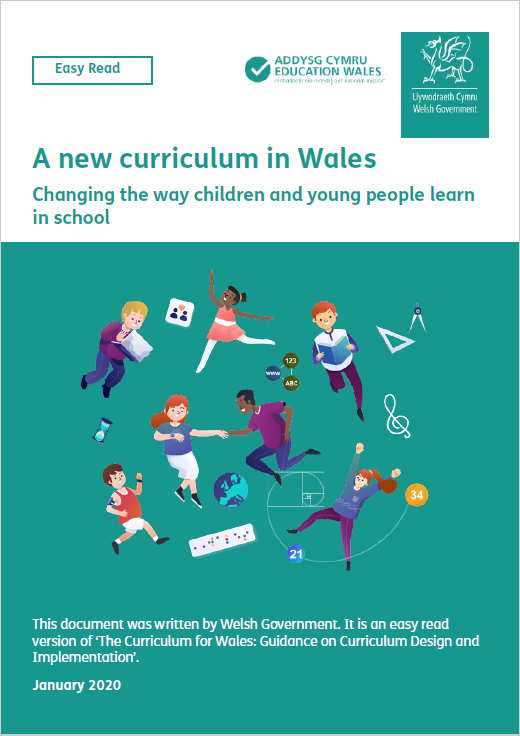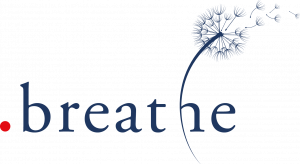
MiSP’s curricula are not designed with an intention to adhere to any specific national curricula criteria. Instead they are supported by well-researched theory and practice from the spheres of mindfulness, neuroscience and social and emotional learning.
However, the breadth of learning arising out of these approaches sits well with many aspects of prescribed and national curricula.
The New Curriculum for Wales is a very good example of such complementarity, and particularly in relation to the Four Purposes, all six Areas of Learning and experience and more specifically the descriptions of learning for the Health and Wellbeing Area of Learning.
Overview - mapping our curricula to the Four Purposes and Integral Skills
| Required by the Welsh Curriculum 2022 | MiSP curricula and approach |
|---|---|
| The four purposes: | |
| 1. Ambitious and capable learners ‘Ambitious, capable learners, ready to learn throughout their lives’ | |
| 2. Enterprising and creative ‘Enterprising, creative contributors, ready to play a full part in life and work’ | |
| 3. Ethical and informed citizens ‘Ethical, informed citizens of Wales and the World’ | |
| 4. Healthy and confident ‘Healthy, confident individuals, ready to lead fulfilling lives as valued members of society’ | |
| Skills integral to the four purposes: | |
| Creativity and innovation ‘Learners should be given space to be curious and inquisitive’ ‘They should be able to identify opportunities’ | |
| Critical thinking and problem-solving ‘Learners should be supported to ask meaningful questions, and to evaluate information, evidence and situations’ ‘Learners should become objective in their decision-making…’ | |
| Personal effectiveness ‘Learners should develop emotional intelligence and awareness, becoming confident and independent’ | |
| Planning and organising ‘They should be able to reflect and adapt…’ | |
| Five principles of progression • Increasing breadth and depth of knowledge • Deepening understanding • Refinement and growing sophistication in the use and application of skills • Making connections and transferring learning into new contexts • Increasing effectiveness | |
Detail - how mindfulness underpins the Four Purposes of the Curriculum for Wales
Ambitious capable learners, ready to learn throughout their lives
Mindfulness actively supports the development of:
- Concentration and choice of focus
- Supportive attitudes such as curiosity, interest and exploration
- Awareness of self (body and mind and how these interrelate)
- Relational skills to build connection with others
- Metacognitive awareness (an ability to “step back” and see all internal and external experience clearly)
- Knowledge about the brain and how brain functioning informs and supports our learning
- Awareness of the process of learning and valuing experiences and learning that arises from the process as much as the outcomes
- Independence and autonomy
- A positive relationship with change
Enterprising, creative contributors, ready to play a full part in life and work
Mindfulness actively supports the development of:
- Engagement in life through present moment, sensory awareness
- Self-awareness and knowledge to recognise skills and strengths
- Valuing both conceptual and experiential knowing of situations, broadening available options and flexibility
- Self-care strategies
- Awareness and willingness to choose people, activities and environments that support and nourish them
- The ability to articulate and communicate experience
- Active listening to self and others
Ethical informed citizens of Wales and the world
Mindfulness actively supports the development of:
- Awareness of self as a human being and an individual
- The ability to respond from awareness (of self and others) rather than to habitually reacting, especially when experience is challenging
- Connection with self, others and place.
- Recognition of experiences that support wellbeing (personally and as a human)
- Compassion, kindness, empathy and appreciation enabling us to flourish and deepening our connection to and understanding of others
Confident and healthy Individuals, ready to lead fulfilling lives as valued members of society
Mindfulness actively supports the development of:
- Enhanced and full human engagement with experience through awareness and understanding the interconnection between thoughts, emotions and body sensations
- Self-care strategies built from present moment awareness and self-knowledge developed from being present in experience (physical and emotional)
- Confidence in perception of experience as “true”, valued and trustworthy
- Attitudes that support playful curiosity and a willingness to develop positive, appropriate strategies to live well
- Relational skills helping to build strong social networks
- Awareness of others and how their emotions and experiences might affect them
- Tolerance of distress as well as the improved capacity to choose to take action to support themselves
- Development of empathy, kindness and compassion for self and others
- Resourcefulness and resilience through self-directed strategies and seeking support as appropriate from others
Detail - mapping MiSP lessons specifically to the six Areas of Learning
| The 6 Areas of Learning and Experience |  |  |  |
|---|---|---|---|
| 1. Expressive Arts | |||
| ‘The development of knowledge, skills and values that can help learners grasp the opportunities and meet the challenges that arise in their lives.’ | LESSON 2: Making Choices; Place LESSON 5: Noticing the Wobble; LESSON 7: Working with Difficulty. | LESSON 3: Recognising Worry; LESSON 4: Being Here Now | LESSON 2: Working with Worry. |
| ‘Engage learners physically, socially and emotionally, nurturing their well-being, self-esteem and resilience.’ | LESSON 6: Finding a Steady; LESSON 11: Growing Happiness. | LESSON 5: Moving Mindfully; .b2 LESSON 4: Becoming Unstuck | LESSON 1: Puppy Training. |
| ‘Explore, refine and communicate ideas while thinking creatively and engaging their imagination and senses.’ | LESSON 4: Everyday Mindfulness; LESSON 9: The Storytelling Mind. | LESSON 1: Playing Attention; LESSON 2: Taming the Animal Mind. | LESSON 4: Being with others |
| 2. Health and well-being | |||
| ‘Developing learners’ motivation, resilience, empathy and decision-making abilities.’ | LESSON 1: Our Amazing Brain; LESSON 2: Making Choices. | LESSON 6: Stepping Back; LESSON 7: Befriending the Difficult. | LESSON 2: Working with Worry. |
| ‘Understand and value how feelings of belonging and connection that come from healthy relationships have a powerful effect on health well-being.’ | LESSON 11: Growing Happiness; LESSON 12: The Yum Factor. | LESSON 8: Taking in the Good; .b2 LESSON 4: Becoming Unstuck. | LESSON 4: Being with others |
| ‘Develop positive, informed behaviours that encourage them both to care for and respect themselves and others.’ | LESSON 7: Working with Difficulty; LESSON 8: Choosing Your Path. | .b2 LESSON 2: Rewiring the Brain; .b2 LESSON 3: You and Your Device. | LESSON 4: Being with others |
| ‘Supporting the mental health and emotional well-being of others.’ | LESSON 11: Growing Happiness; LESSON 12: The Yum Factor. | LESSON 8: Taking in the Good; .b2 LESSON:4: Becoming Unstuck. | LESSON 4: Being with others |
| ‘Developing strategies which help to regulate emotions, contributing towards good mental health and emotional well-being.’ | LESSON 7: Working with Difficulty; LESSON 8: Choosing Your Path. | LESSON 2: Taming the Animal Mind; LESSON 4: Being Here Now. | LESSON 2: Working with Worry; LESSON 3: Beditation |
| 3. Humanities | |||
| ‘Exploration of the human experience in their own localities and elsewhere … as well as in the wider world’. | LESSON 1: Our Amazing Brain. | LESSON 8: Taking in the Good; LESSON 4: Being Here Now. | LESSON 4: Being with others |
| ‘Reflect upon the impact of their actions and those of others.’ | LESSON 2: Making Choices. | .b2 LESSON 2: Rewiring the Brain; .b2 LESSON 3: You and Your Device. | LESSON 4: Being with others |
| 4. Languages, Literacy and Communication | |||
| ‘Provide learners with opportunities to experience spoken and written language, as well as images, in a range of forms and genres.’ | Across all Lessons, including use of film clips, slideshows and audio tracks. Analyses of these take place through worksheets, whole class and small group discussion. | Across all Lessons, including use of film clips, slideshows and audio tracks. Analyses of these take place through worksheets, whole class and small group discussion. | Across all Lessons, including use of film clips, slideshows and audio tracks. Analyses of these take place through worksheets, whole class and small group discussion. |
| ‘Opportunities to speak and write in order to be effective as they interact, explore ideas, express viewpoints, knowledge and understanding and build relationships.’ | Across all Lessons, including use of film clips, slideshows and audio tracks. Analyses of these take place through worksheets, whole class and small group discussion. | Across all Lessons, including use of film clips, slideshows and audio tracks. Analyses of these take place through worksheets, whole class and small group discussion. | Across all Lessons, including use of film clips, slideshows and audio tracks. Analyses of these take place through worksheets, whole class and small group discussion. |
| 5. Maths and Numeracy | |||
| ‘Managing data and representing information effectively.’ | LESSON 1: Our Amazing Brain. | Introduction; LESSON 1: Playing Attention. | |
| ‘Applying and connecting numeracy proficiencies in a range of real-life contexts.’ | LESSON 3: Recognising Worry. | ||
| 6. Science and technology | |||
| ‘Recognising the diversity of living things and how they interact with their environment. | LESSON 3: Puppy Training; LESSON 4: Everyday Mindfulness. | LESSON 8: Taking in the Good. | LESSON 4: Being with Others |
| ‘Develop an understanding of how these have evolved over significant periods of time.‘ | LESSON 7: Working with Difficulty; LESSON 8: Choosing Your Path. | LESSON 7: Befriending the Difficult. | LESSON 2: Working with Worry. |
| ‘All living things require specific conditions and resources to survive and they may have to compete with other organisms to do so. ‘ | LESSON 11: Growing Happiness; LESSON 12: The Yum Factor. | LESSON 8: Taking in the Good. | LESSON 2: Working with Worry; LESSON 4: Being with Others |
Detail - how mindfulness can support 'WHAT MATTERS' for Health and Wellbeing
Mindfulness can help us:
- Become more aware of our body, recognising its messages and developing skills to act appropriately on these signals to support our self-care and wellbeing
- Become aware of the interconnectedness of our body, thoughts and emotions and develop skills in recognising these influences, taking them into account in our choices and our relationships with others
- Develop our awareness and willingness to choose people, activities and environments that support and nourish us
How we process and respond to our experiences affects our mental health and emotional wellbeing
Mindfulness can help us:
- Develop awareness of how our thoughts, emotions and body sensations affect our perceptions, actions and decisions, helping us understand how these connections impact on our mental health and emotional wellbeing
- Develop our awareness of the thoughts, emotions and body sensations arising from our life experiences as they happen, helping us to reflect on their impact on our mental health and emotional wellbeing
- Provide us with the understanding, skills and techniques to enable us to self regulate and where appropriate, communicate about our feelings
- Encourage supportive attitudes such as curiosity, interest and exploration
- Develop metacognitive awareness, able to “step back” and observe our internal and external experience rather than be carried away by it, helping us cope and self regulate
- Develop our awareness, understanding and a new relationship with the full range of human experiencing
- Use our awareness and understanding to help us make appropriate choices in our lives and experiences
- Develop awareness of and empathy with the impact of our thoughts, feelings and actions on others as well of ourselves, strengthening our connection with those around us
Our decision-making impacts on the quality of our lives and the lives of others
Mindfulness can help us:
- Increase our concentration, developing our skills of choice in directing our attention
- Develop the awareness and confidence to make choices in the people, activities and environments that support and nourish us
- Develop our awareness of others’ mind and body states and of how their emotions and experiences might affect us as well as themselves
- Use our awareness of ourselves and others to support our involvement in and contribution to group discussions and decisions
- Develop more tolerance of difficulties we might experience as well as the improved capacity to choose to take action to support ourselves
- Grow our confidence in perception of experience as “true”, valued and trustworthy
- Develop attitudes that support playful curiosity and a willingness to develop positive, appropriate strategies to live well
- Establish a positive relationship with change, bringing an open mind, curiosity and interest to new experiences
- Increase our awareness of self and others and support decision making including our approach to risk and our understanding of the impact of decisions and actions on ourselves and others
How we engage with different social influences shapes who we are and affects our health and wellbeing
Mindfulness can help us:
- Enhance our awareness of ourself as a human being and an individual, supporting independence and autonomy
- Develop our awareness and acceptance of ourself and others’ differences, values and attitudes with curiosity and kindness
- Develop the ability to respond from awareness (of self and others) rather than to habitually reacting, especially when experience is challenging
- Increase our sense of connection with ourself, with others and with place, and respect for others’ connections
- Recognise of experiences that support wellbeing (personally and as a human) and those that do not
- Develop resourcefulness and resilience through self-directed strategies and seeking support as appropriate from others
- Understand that individual experiences shape habitual reactions for ourselves and others and provide skills and techniques to help us respond rather than react
- Develop awareness of the impact of our behaviour, values and attitudes on others who may not share them and apply this understanding to our own behaviour
Healthy relationships are fundamental to our wellbeing
Mindfulness can help us:
- Develop relational skills to build our connection with others
- Awareness of the thoughts, emotions and body sensations arising from our connections with others and the ability to make decisions which support our wellbeing
- Develop our ability to understand our own thoughts, feelings and actions in relation to others and to communicate these when appropriate
- Develop mindful listening to enable us to understand and respect the feelings and needs of others
- Awareness and willingness to choose people, activities and environments that support and feed us
- Recognising when relationships and experiences may not support or feed us and developing the ability to make choices to support our wellbeing
- Development of empathy, kindness and compassion for self and others.
Mapping mindfulness more broadly within the new Curriculum for Wales
The overarching aims of mindfulness in education include the development of skills and understanding which support students in the following ways (see main Mindfulness Toolkit for details):
- To cope
- To connect
- To flourish
- To empower change
These aims thread through the four purposes which are the starting point and the aspiration for all other considerations in the development of the New Curriculum.
Cope, connect, flourish and empower change are also strongly represented progressively in the descriptions of learning, and by progression step 5 the descriptors cover all four mindfulness aims.